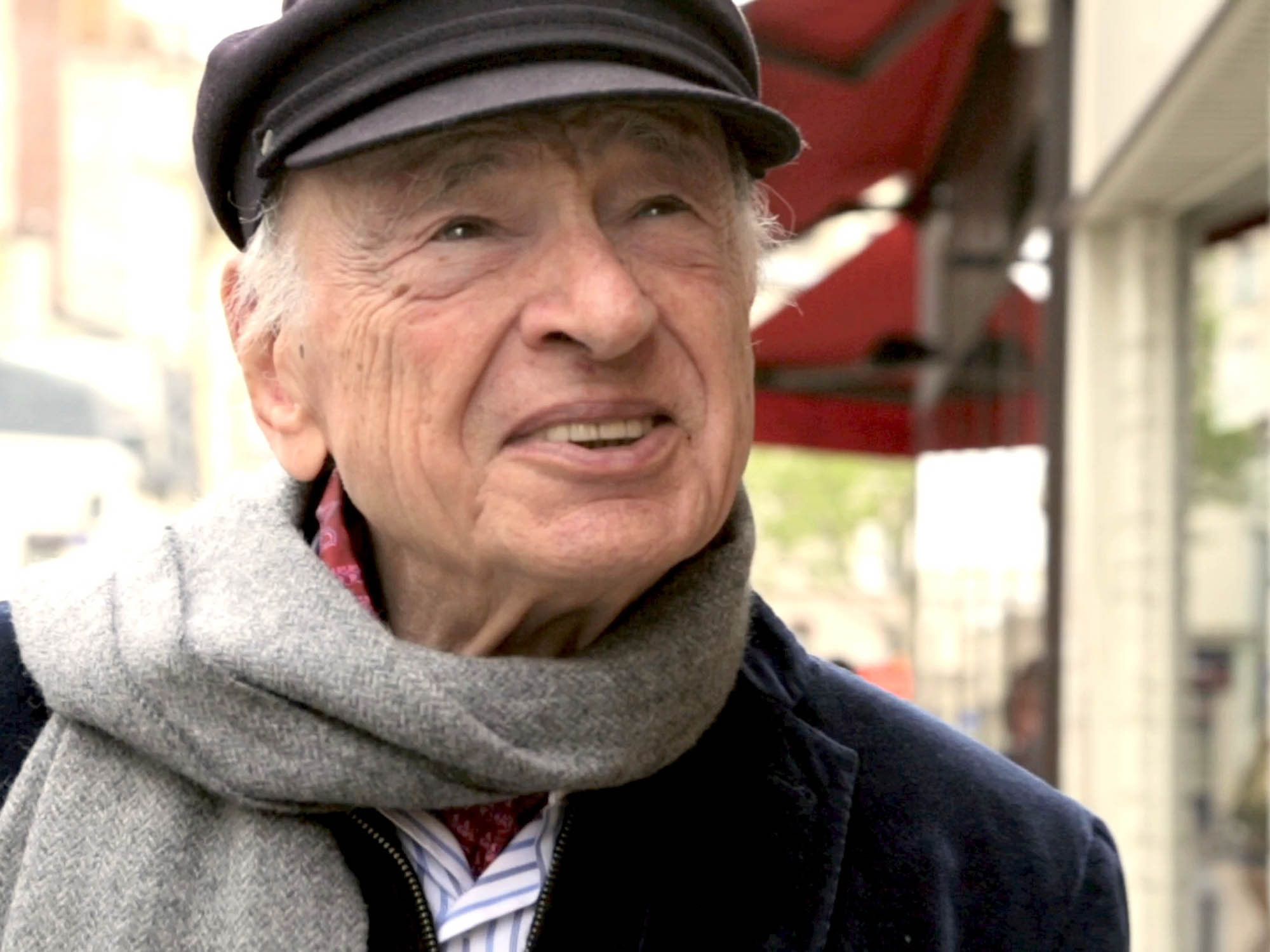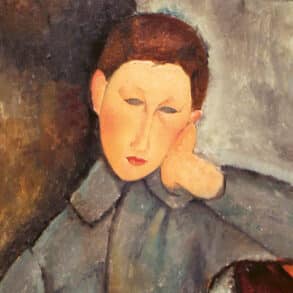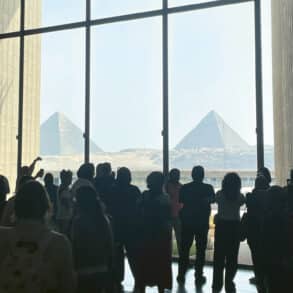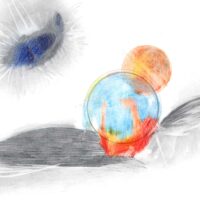Sociologist Edgar Morin has become a monument of intellectual life in France—not only because he was active against fascism in Spain and in the Resistance against the German occupation, and not only because he offered original food for thought throughout his life, but also because, at the age of 102, he has lost none of his intellectual vigilance and continues to publish books, give interviews, and even share his thoughts almost daily on the social network X (formerly Twitter).
In a recent interview with the Swiss newspaper Le Temps,1 Edgar Morin spoke about his book Réveillons-nous! (Wake Up!)2 published in 2022, in which he defines the state that humanity is living in through our contemporary crises as “generalised sleepwalking”. He told Le Temps, “With these words, I reference primarily my experiences in the 1930s and 1940s—years marked by mounting dangers with Hitler coming to power, the Spanish Civil War, Munich and the annexation of Czechoslovakia. […] Very few people were aware at the time of this relentless march towards a global explosion.”
Morin emphasises, however, that crises are also opportunities for creating awareness, for an awakening. For him, this awakening does not consist simply of enraged activism but rather of reformed thinking, which he describes in his books. It is precisely the question of thinking that he returns to when he wants to penetrate to the core of the present crisis. Here, the concept of “complex thinking” crops up, but also the concept of “connectedness” as a way out of a fragmented and one-sided way of thinking. As early as 2014, in his book La Tête bien faite (The Well-Ordered Head),3 Morin summed up nicely the paradox of the human subject within the cosmos. “We are in nature and outside nature at the same time. We are cosmic, physical, biological, cultural, cerebral, spiritual beings […]. We are children of the cosmos, but because of our humanity, our culture, our spirit, and our consciousness, we have become alien to this cosmos from which we originate and which remains secretly intimate to us. Our thinking and our consciousness, which enable us to know this physical world, distance us from it all the more. The mere fact that we look at the universe rationally and scientifically separates us from it.”
Today, then, it is a question of overcoming the contradiction inherent in human nature, of being simultaneously in nature and outside nature, of being simultaneously local and universal. How can we overcome this paradox within our thinking, our worldview itself? In Réveillons-nous! Morin states, “Hegemonic thinking is based on an understanding of rationality limited to Aristotelian logic, which believes in its absolute conformity with reality and excludes any contradiction as an absurdity. It obeys the paradigm that prescribes seeing the universe in terms of objects that are isolated from their context, or in terms of elements that are separate from each other. The reform of thinking, therefore, requires a paradigmatic revolution. It is a matter of replacing the principles that produce simplistic, one-sided, partial, and obviously partisan thinking with principles that make it possible to simultaneously recognise, differentiate and unite complementary antagonisms.”
Recognising, differentiating, and uniting antagonisms is a characteristic of the reform of thinking, of the awakening that is necessary today. In other words, to break free from simplistic thinking and venture into “complex thinking” requires learning to think and overcome opposites. Whether it is the ecological question, left/right political opposites, or geopolitical crises: how can we recognise, in the antagonisms we encounter, the expression of different needs of human nature? For example, can the great political polarity between left and right, conservative and progressive ideas, universality and locality be understood as an expression of polar but reconcilable needs? “We must no longer contrast the universal with our homelands, but concentrically link our homelands—familial, regional, national, European—with each other and incorporate them into the concrete universe of our earthly homeland.”4 The need to recognise ourselves as one humanity belonging to “homeland earth” can be reconciled with the need for local belonging.
Morin also addressed the issue of war, particularly the one raging in Ukraine today, in his book De guerre en guerre—De 1940 à l’Ukraine (From War to War—From 1940 to Ukraine),5 published in 2023. Here, too, he appeals to complex thinking in his interview with Le Temps: “Too often, we are presented with just a Manichean conflict. It is clear that Putin’s Russia is the aggressor. But let’s take the case of the Donbas, for example. […] The Russified people living there need a special status that is not limited to mere integration into Ukraine, with the risk of being subjugated or destroyed. Most of the time, when a complex problem arises, we pretend it doesn’t exist. […] It is not enough to invoke international treaties. What about the right of self-determination of peoples? The war in Ukraine stirs up a complex history that cannot be reduced to an act of aggression and the courageous resistance of a people against the aggressor. We cannot limit ourselves to the one-sided view of the news. […] War brings with it a flood of illusions, lies, mystifications, and one-sided information that we need to be aware of.”
We understand; for this centenarian sociologist, it is not this or that external solution that will enable us to overcome these crises but a change in our thinking. When the journalist from Le Temps asked him about the main obstacles to a change of course, he named—besides the “powerful economic interests that dominate and control societies”—”the vacuum in thinking that prevents us from imagining and designing a world and a story for today.” This “vacuum in thinking” is certainly the main adversary against which Edgar Morin has fought all his life. Even though Morin does not go so far as to promote a spiritual science in the sense of anthroposophy, we can sense that there is a spiritual force in his thinking. The new, complex, and, at the same time, conciliatory thinking to which he appeals is a thinking that also wants to draw close to poetry: “The poetry of life is everything that elevates us, everything that leads us to community, everything that allows us to love. […] It is becoming increasingly important to enable people to express their poetic potential. Poetry is not a luxury,” says Morin in Le Temps.
At 102, Edgar Morin has nothing more to prove, and his words are all the freer for that. He has attained the status of the “wise old man”. For the most part, a calm, sunny smile lights up his face.
Translation Christian von Arnim. The quotes were translated from the French by the author of the article.
Photo Edgar Morin on the set of ‹Edgar Morin, Chronique d’un regard› [Edgar Morin, Chronicle of a look], 2015, CC BY-SA4.0
Footnotes
- Eric Tariant, interview with Edgar Morin. Nous marchons vers de possibles catastrophes dans un état de rêve éveillé. Le Temps, September 8, 2023.
- Edgar Morin, Réveillons-nous!. Denoel, 2022.
- Edgar Morin, La Tête bien faite. Repenser la réforme, réformer la pensée. Le Seuil, 2014.
- Edgar Morin, Réveillons-nous!, Denoel, 2022.
- Edgar Morin, De guerre en guerre—De 1940 à l’Ukraine. Editions de l’Aube, 2023.









